
Dmitri Ivanovich Mendeleev was a Russian chemist and inventor. He is best known for formulating the Periodic Law and creating a version of the periodic table of elements. He used the Periodic Law not only to correct the then-accepted properties of some known elements, such as the valence and atomic weight of uranium, but also to predict the properties of three elements that were yet to be discovered.

The Russian Academy of Sciences consists of the national academy of Russia; a network of scientific research institutes from across the Russian Federation; and additional scientific and social units such as libraries, publishing units, and hospitals.
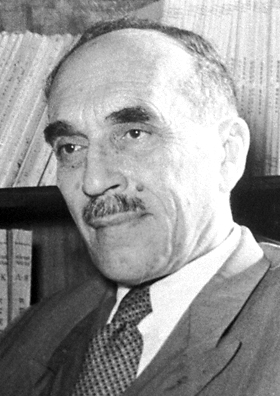
Nikolay Nikolayevich Semyonov , sometimes Semenov, Semionov or Semenoff was a Soviet physicist and chemist. Semyonov was awarded the 1956 Nobel Prize in Chemistry for his work on the mechanism of chemical transformation.

The periodic table is an arrangement of the chemical elements, structured by their atomic number, electron configuration and recurring chemical properties. In the basic form, elements are presented in order of increasing atomic number, in the reading sequence. Then, rows and columns are created by starting new rows and inserting blank cells, so that rows (periods) and columns (groups) show elements with recurring properties. For example, all elements in group (column) 18 are noble gases that are largely—though not completely—unreactive.

Nikolay Dmitriyevich Zelinsky was a Russian and Soviet chemist. Academician of the Academy of Sciences of the Soviet Union (1929).

The Ivanovo State University of Chemistry and Technology or ISUCT (ИГХТУ) is a public university located in Ivanovo, the administrative center of Ivanovo Oblast, Russia. Research priorities of the ISUCT are concentrated in chemical technology, chemistry and engineering.

Saint Petersburg State Institute of Technology (Technical University) (Russian: Санкт-Петербургский Технологический Институт (Технический Университет)) was founded in 1828. It is one of the oldest institutions of higher education in Russia, and currently trains around 5,000 students.
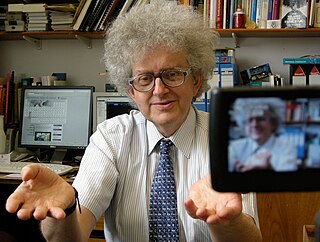
Sir Martyn Poliakoff, is a British chemist, working on fundamental chemistry, and on developing environmentally acceptable processes and materials. The core themes of his work are supercritical fluids, infrared spectroscopy and lasers. He is a research professor in chemistry at the University of Nottingham. As well as carrying out research at the University of Nottingham, he is a lecturer, teaching a number of modules including green chemistry.

Alexander Nikolayevich Nesmeyanov was a Soviet chemist and academician (1943) specializing in organometallic chemistry.

MIREA — Russian Technological University is The Federal State Budget Educational Institution of Higher Education «MIREA — Russian Technological University». It is a higher educational institution in Moscow, Russia, which is an educational, research and innovation complex. It was ranked # 1,960 globally in 2023 by US News & World Report.
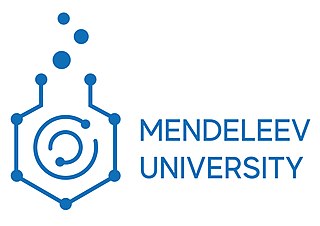
D. Mendeleev University of Chemical Technology of Russia (MUCTR) is a public research university in Moscow, and is the largest Russian center for education and research in the field of chemical technology. The history of MUCTR can be traced back to the Moscow Industrial School initially founded in 1898. The university acquired its current name and status in 1992 with its Moscow campus mainly located on Miusskaya Square and in Tushino. The university's other two branches are situated in Novomoskovsk and Tashkent (Uzbekistan). In 2023, the university was ranked # 1,955 by US News & World Report.
John Frank Davidson FRS FREng FIChemE was a British chemical engineer and former Shell Professor of Chemical Engineering at the University of Cambridge. He is regarded as the founding father of the subject of Fluidization in Chemical Engineering.

Houston Community College (HCC), also known as Houston Community College System (HCCS), is a community college system that operates community colleges in Houston, Missouri City, Greater Katy, and Stafford in Texas. It is notable for actively recruiting internationally and for the large number of international students enrolled, over 5,700 in 2015. Its open enrollment policies, which do not require proficiency in English, are backed by a full-time 18-month English proficiency program and remedial courses.

Moscow State University of Fine Chemical Technologies named after M.V. Lomonosov is one of the oldest universities in the country that offer training in a wide range of specialties in the field of chemical technology.

Mikhail Mikhaylovich Shultz, was a Soviet/Russian physical chemist, and an artist.

Mendeleev readings — a solemn act, the annual reports of leading Soviet/Russian scholars on topics affecting all areas of chemistry and its related sciences: physics, biology and biochemistry. Date of readings is due to two dates: birthday of Dmitri Mendeleev, and sending messages to them on the opening Periodic Law.

Valentin Afanasyevich Koptyug was a Soviet Belarusian scientist, specializing in physical and organic chemistry.
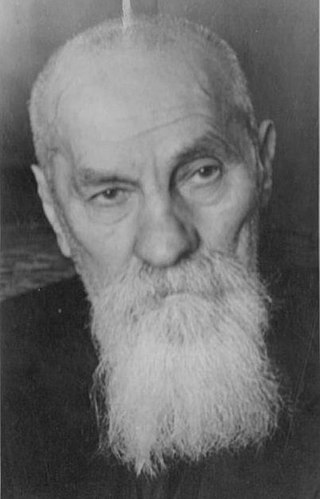
Aleksei Nikolayevich Bach was a Soviet biochemist and revolutionary. He was a member of the Academy of Sciences of the Soviet Union and senior member of the Supreme Soviet.
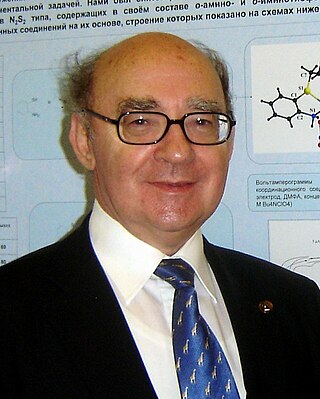
Vladimir Isaakovich Minkin is a Russian chemist. Professor, Doctor of Chemical Sciences.
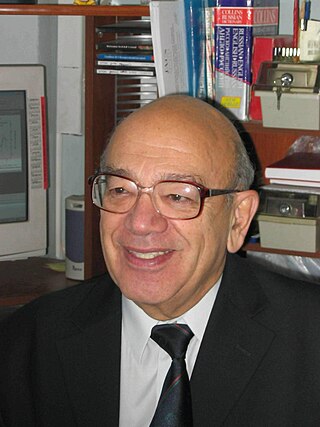
Ilya Iosifovich Moiseev was a Soviet and Russian chemist. An expert in both kinetics and the coordination chemistry of transition metals, he made significant advances in metal-complex catalysis.


















